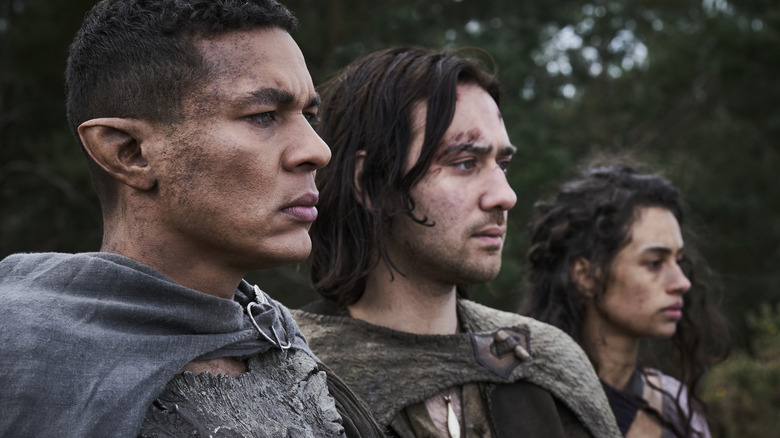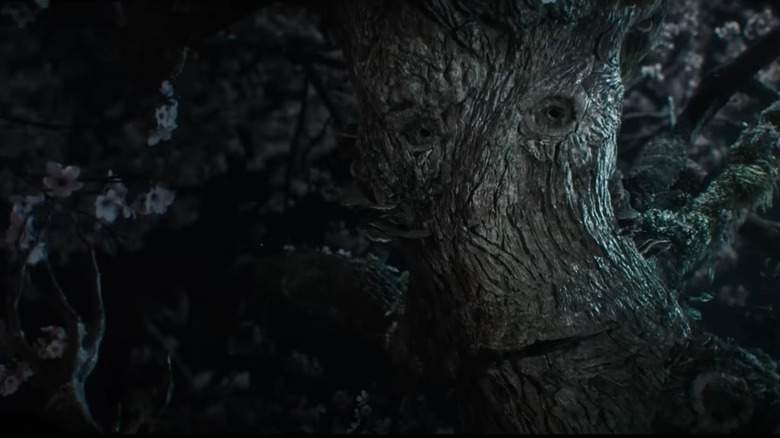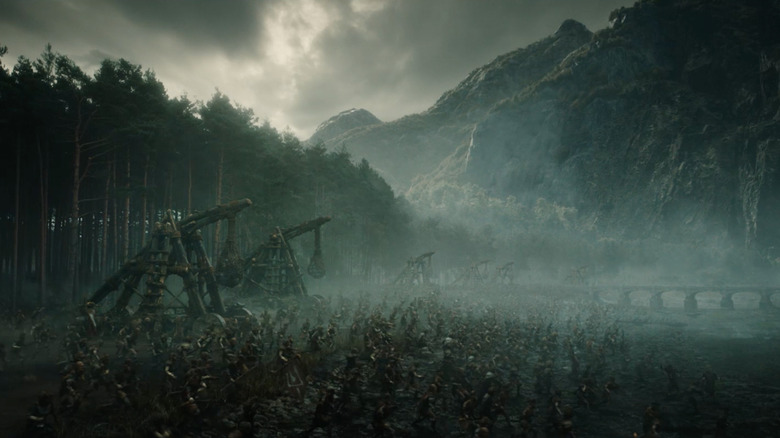There is no curse in Elvish, Entish, or the tongues of men for the treachery of spoilers. This article discusses events from the latest episode of “The Lord of the Rings: The Rings of Power.”
We’re only four episodes into season 2 of “The Rings of Power,” but the Prime Video series is already living up to its potential as an expansion of J.R.R. Tolkien’s lore. Familiar characters like Galadriel, Elrond, Isildur, and, oh yeah, that Dark Lord Sauron have all been given several new layers through this glimpse into such early stages of their lives — “early” being a relative term when talking about individuals who tend to live thousands of years, of course. Concepts taken straight from the source material (like the recent reveal of orc babies) have challenged all our usual preconceptions about this franchise and the fantasy genre as a whole. But episode 4 takes this to even greater heights, introducing numerous locations and mythical figures and creatures that fans have been waiting decades to see in live-action.
The biggest headlines from this week will likely be reserved for Rory Kinnear’s Tom Bombadil, the unbearably creepy Barrow-wights, or perhaps even the Harfoots’ distant relatives known as Stoors … but what about showing some love for the long-lost Entwives? Noticeably missing from the original “The Lord of the Rings” (both the books and the movie trilogy), the treelike Entwives represent one of the most fascinating and tragic stories in all of Tolkien’s legendarium. Here, the Entwife Winterblossom (voiced by Olivia Williams) finally arrives on the scene alongside the Ent Snaggleroot (Jim Broadbent) at the most crucial of moments, warning Isildur (Maxim Baldry), Arondir (Ismael Cruz Córdova), and the troublemaking Estrid (Nia Towle) of marauding orcs with a taste for chopping down trees.
Here’s why these massive and ancient creatures are so significant.
The Entwives are one of Tolkien’s greatest mysteries
Contrary to what some may believe, the world of Middle-earth isn’t all sunshine and rainbows compared to more modern and edgier fantasy epics that have followed in Tolkien’s footsteps (like, say, “Game of Thrones”). Although generally more earnest and optimistic than anything written by everyone’s favorite procrastinating and grumpy author George R.R. Martin, “The Lord of the Rings” contains more than its fair share of violence, disturbingly dark tales, and epic tragedies.
That last category is where the Entwives come in, who were glimpsed in a prior trailer for “The Rings of Power” but are only ever spoken of in haunted whispers in “The Two Towers.” While they’re obviously active and, in this case, quite angry during the Second Age, they’re nothing but memories by the time the famous Fellowship are doing their thing thousands of years later. According to the nostalgic Treebeard, the eldest Ent who is among the very last of his kind and one of the few remaining “shepherds” of the forest, their beloved counterparts have been missing for quite some time now. Always more attracted to the wide-open plains and gardens of ancient Middle-earth than the stuffy forests that the Ents called home, the Entwives previously decided to stray further and further away from their husbands to pursue their own interests. After many long years, Treebeard finally decided to follow their tracks in order to check up on them … only to discover that they’d all vanished, their once-fruitful lands now a desolate waste. Missing but not quite presumed dead, the Ents spend a literal age searching for their wives, inspiring wistful songs and tragic tales among the other beings of Middle-earth.
In “The Two Towers,” Treebeard remains hopeful that they might still be out there somewhere. But “The Rings of Power” could possibly clear up this longstanding mystery surrounding the Entwives.
The Rings of Power could explain what happened to the Entwives
Not all stories have a happy ending in Middle-earth. Even after (spoiler alert) destroying the One Ring and saving the world from the threat of Sauron, Frodo and the other Ringbearers must leave their homes and make for the Blessed Realm of Valinor, never to return. The love story between the mortal Aragorn and immortal elf Arwen, one of Tolkien’s most famous romances, ultimately ends in the tragic death of the former and the equally morose wanderings of the latter, now a widow. The story of the Entwives is almost certainly doomed to end similarly.
Although Tolkien never officially confirmed the fate of the Entwives, he included plenty of hints for us to put the pieces together ourselves. The most telling clue comes from Treebeard himself, who indicates that the former garden homes of the Entwives now reside in the region known fittingly as the Brown Lands. It’s established that this area earned the name as a result of Sauron, who laid waste to the countryside during his war against Middle-earth prior to the events of “The Lord of the Rings.” It doesn’t take many mental gymnastics to make the leap and assume that Sauron either ordered the killing of the Entwives himself, or simply drove them off as collateral damage in his military campaign against all free peoples in the land — the one that culminated in the Last Alliance, as seen in the prologue sequence of Peter Jackson’s “The Fellowship of the Ring.” “The Rings of Power” could be building to this exact moment, with future seasons perhaps revealing the destruction or exile of the Entwives while exploring everything leading up to Sauron’s (temporary) defeat.
New episodes of “The Rings of Power” stream on Prime Video every Thursday.










